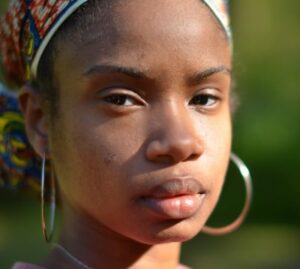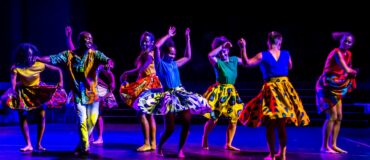By Sasha Jelan
Sasha Jelan is a 2020/21 Dance/USA Archiving & Preservation Fellow. Phase 1 of her Fellowship ran from June-September 2020, and was hosted remotely by Viver Brasil. For Phase 2 in the summer of 2021, Sasha is continuing her work with Viver Brasil, remotely and in site. Read more about the Fellowship program here. This is the third post in Sasha’s blog. Read part two here.
October 6, 2021
I left the first phase of the Dance/USA Archiving & Preservation fellowship uncertain. Uncertain if the work done with Viver Brasil was effective, purposeful, or helpful. Much of the work was conversational, developing an accord with Viver Brasil’s founding director Linda Yudin. There was planning of hypothetical scenarios, and a struggle to ground ourselves after having the rug pulled from under us by the Covid-19 pandemic.
In between the first and second phase, I had the opportunity to speak with other archivists within the community and found a gift amongst what felt like the chaos and uncertainty of the first phase. I learned that other archivists yearned for the opportunity to gradually develop a relationship with their host organizations, an opportunity only afforded due to the pandemic. Many felt thrown into their positions without having a full understanding of the organization’s history, management, and the individuals who make the organizations run. With this alternative lens, I was able to see just how much we had actually accomplished during the first phase.
After the close of the first phase, I wanted to approach this second phase with clarity and attainable goals. Through the support and guidance of the Fellowship’s administrators and archival mentors, we were able to identify, as a group, key tasks to accomplish. This process began by recognizing what was available remotely, and what aspect of the collection was most important. Following this, I had to consider what I could realistically do remotely. Thus, identifying the key subject within the collection, Joselita Moreira da Cruz Silva, better known as Zelita, Viver Brasil’s master teacher and elder, and developing a cataloging framework to organize and account for those records became the goal. Our key project in the second phase over this summer 2021 has been cataloging a hard drive which has footage documenting Linda Yudin’s fellowship residency in 2012 at the Sacatar Institute on the island of Itaparica, Bahia, Brasil. On this hard drive are eight weeks of interviews with elders and two solid weeks of footage with Zelita. The goal is to inventory and catalog these materials, to identify key pieces that can be translated from Portuguese to English, as a first step in creating further access.

Sasha Jelan scanning archival materials in Los Angeles, August 2021.
This framework could then be used to catalog the broader collection in the future. Through the guidance of Fellowship mentor Genie Guerard, Curator and Manuscripts Librarian at UCLA, I was able to take existing templates and tailor them to the needs of Viver Brasil. I also referred to the Describing Archives Content Standard (DACS) and the ArchivesSpace finding aid generator to further develop my framework. The goal is to build a solid foundation that adheres to current archival standards and practices so that if the collection is made public, donated, or custodianship is shared, the transition is as seamless as possible.
I also had the opportunity to come to Los Angeles for two days and finally meet with Linda and was able to see the wonderful collection that the company has in its possession. I was able to see the true potential of this project. With additional time and resources, this rich collection of Afro-Brazilian culture and history can potentially serve the greater community.
Throughout this fellowship and my graduate education, I’ve learned that community is key. The support and guidance of Dance/USA, fellow archivists, and the dance community is crucial in continuing the conversation on what is possible and how things can manifest during these uncertain times.

Sasha Jelan is currently pursuing a masters degree in Archival Studies at Clayton State University. She received her BA in Art at the University of Southern California’s Roski School of Art & Design, with an emphasis in photography.
Sasha’s professional experience includes supporting the digitization and educational programming of institutions such as the Metropolitan Museum of Art and the Studio Museum in Harlem. Her archival practice is rooted in re-thinking and reclaiming the authorship and access of the African Diaspora.
Dance was a constant in Sasha’s youth, where she studied West African, Ballet and Modern dance techniques. Sasha is very excited to revisit the history of African Dance with Viver Brasil, and to support an organization whose mission closely aligns with her archival interests.
____
We accept submissions on topics relevant to the field: advocacy, artistic issues, arts policy, community building, development, employment, engagement, touring, and other topics that deal with the business of dance. We cannot publish criticism, single-company season announcements, and single-company or single artist profiles. Additionally, we welcome feedback on articles. If you have a topic that you would like to see addressed or feedback, please contact communications@danceusa.org.
Disclaimer: Opinions expressed in guest posts do not necessarily represent the viewpoints of Dance/USA.




